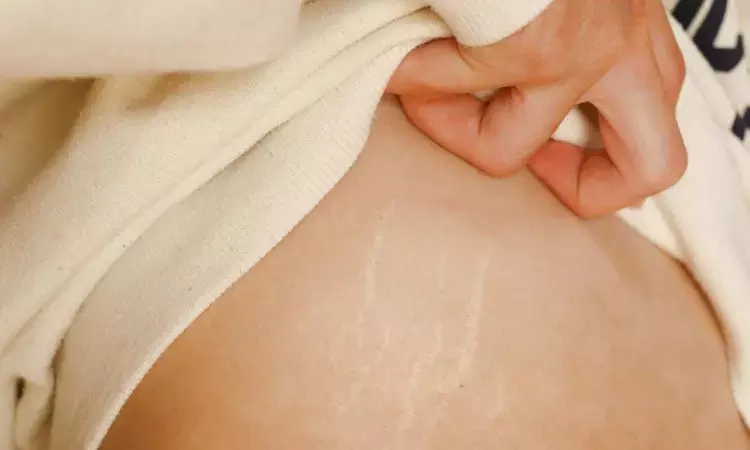- Home
- Medical news & Guidelines
- Anesthesiology
- Cardiology and CTVS
- Critical Care
- Dentistry
- Dermatology
- Diabetes and Endocrinology
- ENT
- Gastroenterology
- Medicine
- Nephrology
- Neurology
- Obstretics-Gynaecology
- Oncology
- Ophthalmology
- Orthopaedics
- Pediatrics-Neonatology
- Psychiatry
- Pulmonology
- Radiology
- Surgery
- Urology
- Laboratory Medicine
- Diet
- Nursing
- Paramedical
- Physiotherapy
- Health news
- Fact Check
- Bone Health Fact Check
- Brain Health Fact Check
- Cancer Related Fact Check
- Child Care Fact Check
- Dental and oral health fact check
- Diabetes and metabolic health fact check
- Diet and Nutrition Fact Check
- Eye and ENT Care Fact Check
- Fitness fact check
- Gut health fact check
- Heart health fact check
- Kidney health fact check
- Medical education fact check
- Men's health fact check
- Respiratory fact check
- Skin and hair care fact check
- Vaccine and Immunization fact check
- Women's health fact check
- AYUSH
- State News
- Andaman and Nicobar Islands
- Andhra Pradesh
- Arunachal Pradesh
- Assam
- Bihar
- Chandigarh
- Chattisgarh
- Dadra and Nagar Haveli
- Daman and Diu
- Delhi
- Goa
- Gujarat
- Haryana
- Himachal Pradesh
- Jammu & Kashmir
- Jharkhand
- Karnataka
- Kerala
- Ladakh
- Lakshadweep
- Madhya Pradesh
- Maharashtra
- Manipur
- Meghalaya
- Mizoram
- Nagaland
- Odisha
- Puducherry
- Punjab
- Rajasthan
- Sikkim
- Tamil Nadu
- Telangana
- Tripura
- Uttar Pradesh
- Uttrakhand
- West Bengal
- Medical Education
- Industry
Topical beta-glucan plus nanofractional and magnetic nanofractional radiofrequency effective treatment of stretch marks

Researchers have found in a new research that Topical beta-glucan plus nanofractional radiofrequency and magnetic nanofractional radiofrequency effective treatment of stretch marks.
The new study has been published in the journal Dermatology and Therapy.
Stretch marks are common atrophic dermal scars with significant physical and psychological effects. Therefore, there is a need for effective cosmetics and procedures for stretch mark treatment.Stretch marks affect over half of pregnant women and can lead to a negative self-image, thus impacting their quality of life. Many risk factors that cause stretch marks are difficult to control during pregnancy; therefore, an effective and tolerable treatment modality is required.
Several treatment strategies have been investigated, including the topical application of various creams or oils , superficial dermabrasion [18], trichloroacetic acid peel , platelet-rich plasma , radiofrequency (RF) and laser therapy .
This study aimed to evaluate the efficacy and safety of a novel treatment for stretch marks that is made up of topical formulations containing beta-glucan combined with nanofractional radiofrequency.
This randomized, blinded control trial enrolled 64 Chinese women aged 20–45 years at > 6 months after delivery with obvious white or silver abdominal stretch marks. Participants were randomly allocated to group A (blank group), group B (topical product group), group C (product combined with nanofractional radiofrequency), and group D (vehicle combined with nanofractional radiofrequency). The stretch mark width, skin elasticity, skin color, skin thickness, and collagen density were noninvasively measured. Two trained assessors evaluated the severity, color, outline, and relaxation of the striae.
Results
Group C showed the best treatment efficacy, with no adverse effects observed during the study period.
The findings indicate that stretch mark treatment using topical formulations containing beta-glucan, combined with nanofractional radiofrequency plus magnetic nanofractional radiofrequency, is tolerable and effective.
Reference:
Shu, X., Huo, W., Zou, L. et al. Treatment of Stretch Marks Using a New Formulation Combining Nanofractional Radiofrequency Plus Magnetic Nanofractional Radiofrequency. Dermatol Ther (Heidelb) (2023). https://doi.org/10.1007/s13555-023-00926-y
Dr. Shravani Dali has completed her BDS from Pravara institute of medical sciences, loni. Following which she extensively worked in the healthcare sector for 2+ years. She has been actively involved in writing blogs in field of health and wellness. Currently she is pursuing her Masters of public health-health administration from Tata institute of social sciences. She can be contacted at editorial@medicaldialogues.in.
Dr Kamal Kant Kohli-MBBS, DTCD- a chest specialist with more than 30 years of practice and a flair for writing clinical articles, Dr Kamal Kant Kohli joined Medical Dialogues as a Chief Editor of Medical News. Besides writing articles, as an editor, he proofreads and verifies all the medical content published on Medical Dialogues including those coming from journals, studies,medical conferences,guidelines etc. Email: drkohli@medicaldialogues.in. Contact no. 011-43720751


